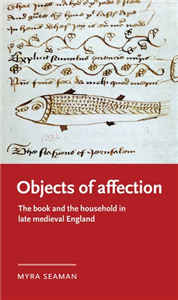Description
More Information
Rights Information
Albania, Algeria, Angola, Argentina, Armenia, Australia, Austria, Bahrain, Belgium, Belize, Benin, Bolivia, Bosnia and Herzegovina, Botswana, Brazil, Bulgaria, Burkina Faso, Burundi, Cameroon, Canada, Cape Verde, Central African Republic, Chad, Chile, China, Colombia, Comoros, Congo [DRC], Congo, Republic of the, Costa Rica, Ivory Coast, Croatia, Czech Republic, Denmark, Djibouti, Ecuador, Egypt, El Salvador, Equatorial Guinea, Eritrea, Estonia, Ethiopia, Faroe Islands, Finland, France, French Guiana, Gabon, Gambia, Georgia, Germany, Ghana, Greece, Guatemala, Guinea, Guinea-Bissau, Guyana, Honduras, Hongkong, Hungary, Iceland, India, Indonesia, Iran, Iraq, Ireland, Israel, Italy, Japan, Jordan, Kazakhstan, Kenya, Kuwait, Latvia, Lebanon, Lesotho, Liberia, Libya, Lithuania, Luxembourg, Macau, China, Macedonia [FYROM], Madagascar, Malawi, Malaysia, Mali, Malta, Mauritania, Mauritius, Mayotte, Mexico, Mongolia, Montenegro, Morocco, Mozambique, Namibia, Netherlands, New Zealand, Nicaragua, Niger, Nigeria, Norway, Oman, Pakistan, Panama, Paraguay, Peru, Philippines, Poland, Portugal, Puerto Rico, Qatar, Reunion, Romania, Russia, Rwanda, Saint Helena, Sao Tome and Principe, Saudi Arabia, Senegal, Serbia, Seychelles, Sierra Leone, Singapore, Slovakia, Slovenia, Somalia, South Africa, South Korea, Spain, Sri Lanka, Sudan, Suriname, Swaziland, Sweden, Switzerland, Syria, Taiwan, Tanzania, Thailand, Timor-Leste, Togo, Tokelau, Tunisia, Turkey, Uganda, Ukraine, United Arab Emirates, United Kingdom, United States, Uruguay, Venezuela, Vietnam, Western Sahara, Yemen, Zambia, Zimbabwe, South Sudan, Cyprus, Palestine, Bangladesh, Cambodia, Liechtenstein, Azerbaijan
Endorsements
Objects of affection reveals the affective agency of the book by exploring the emotional literacy training that a single codex provided to a late-medieval English household. Oxford, Bodleian Library Manuscript Ashmole 61 was produced by a scribe in Leicestershire sometime between 1475 and 1510. It includes forty-one verse texts that encourage particular performances of late-medieval Christian citizenship. Objects of affection examines how the body of the manuscript, including images of fish and flowers scattered like graffiti throughout, contributes to the reader's full experience. It shows that diverse inhabitants of the household produce the ecology of the book as they are incorporated into it: in the material world they generate and that guides their living, in the social and spiritual desires that shape their influences in that world, and so on. Ultimately, Ashmole 61 affirms not only the physical but the moral agency of nonhumans, as they fashion spiritually generous and socially mindful human household members. Objects of affection utilizes and contributes to three clusters of approaches: manuscript studies and history of the book; new materialisms, object studies, and critical animal studies; and the history of emotions. This methodological assemblage will be of interest to interdisciplinary audiences, from academic libraries and individual scholars to graduates and undergraduates in courses focusing on MS Ashmole 61 and other late-medieval manuscripts.
Reviews
Objects of affection reveals the affective agency of the book by exploring the emotional literacy training that a single codex provided to a late-medieval English household. Oxford, Bodleian Library Manuscript Ashmole 61 was produced by a scribe in Leicestershire sometime between 1475 and 1510. It includes forty-one verse texts that encourage particular performances of late-medieval Christian citizenship. Objects of affection examines how the body of the manuscript, including images of fish and flowers scattered like graffiti throughout, contributes to the reader's full experience. It shows that diverse inhabitants of the household produce the ecology of the book as they are incorporated into it: in the material world they generate and that guides their living, in the social and spiritual desires that shape their influences in that world, and so on. Ultimately, Ashmole 61 affirms not only the physical but the moral agency of nonhumans, as they fashion spiritually generous and socially mindful human household members. Objects of affection utilizes and contributes to three clusters of approaches: manuscript studies and history of the book; new materialisms, object studies, and critical animal studies; and the history of emotions. This methodological assemblage will be of interest to interdisciplinary audiences, from academic libraries and individual scholars to graduates and undergraduates in courses focusing on MS Ashmole 61 and other late-medieval manuscripts.
Author Biography
Myra Seaman is Professor of English at the College of Charleston
Manchester University Press
Manchester University Press is a leading UK publisher known for excellent research in the humanities and social sciences.
View all titlesBibliographic Information
- Publisher Manchester University Press
- Publication Date January 2023
- Orginal LanguageEnglish
- ISBN/Identifier 9781526167187 / 1526167182
- Publication Country or regionUnited Kingdom
- FormatPrint PDF
- Pages296
- ReadershipGeneral/trade
- Publish StatusPublished
- Dimensions216 X 138 mm
- Biblio NotesDerived from Proprietary 4968
- SeriesManchester Medieval Literature and Culture
- Reference Code15089
Manchester University Press has chosen to review this offer before it proceeds.
You will receive an email update that will bring you back to complete the process.
You can also check the status in the My Offers area

Please wait while the payment is being prepared.
Do not close this window.



